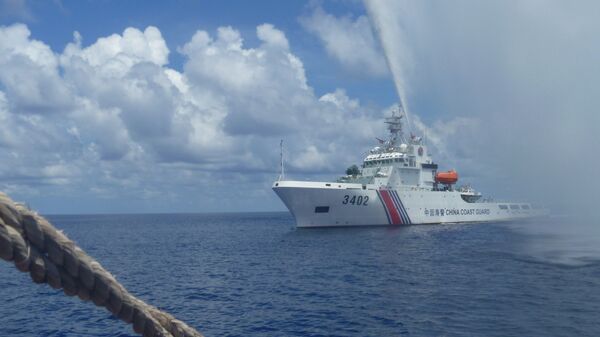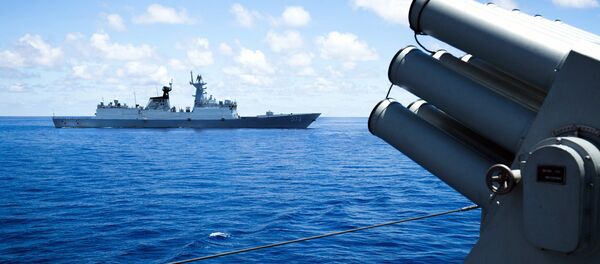A US Coast Guard spokesman told Japanese media that the USCG Mellon "rendezvoused and conducted a professional exchange," with two ships from the Chinese Coast Guard.
US Coast Guard District 17 spokesman Lt. Brian Dykens said, "The exchange focused on professional goodwill between coast guards." He remarked that the exchange was part of a shiprider agreement in which US Coast Guard vessels work with two ships from the same Chinese branch of maritime service. Afterwards, the Mellon resumed its scheduled duties before returning to its homeport in Seattle.
China’s Xinhua News Agency quoted a coast guard official earlier this week, saying "cooperation between the two countries’ coast guards has deepened through personnel exchanges and joint operations." It was also reported that China plans to deepen their relationship with the US Coast Guard and expand its patrols in the northern part of the Pacific Ocean.
Relations between China and the US have been strained over issues with the contested East China and South China Seas. Beijing was dissatisfied with the international arbitration court at the Hague when it ruled in July that China has no historical claim to the South China Sea. China called the ruling "waste paper."
J. Berkshire Miller, an international affairs fellow with the Council on Foreign Relations based in Tokyo, said that the joint operations were good start to the two nations mending fences, but that more cooperation is required to soothe tensions.
Miller suggested that the operations were important, "considering the key role that China’s coast guard is playing, and indeed contributing to, with regard to regional maritime tensions. That said, it is important not to place too much emphasis on the operation. This represents baseline cooperation and is a low-hanging fruit."
The analyst offers that genuine reconciliation would require more effort on China’s part. "In the East China Sea, for example, Beijing should work earnestly with Tokyo to follow through on commitments to implement crisis avoidance mechanisms surrounding the Senkaku Islands…Unfortunately, it seems that China continues to emphasize coercive actions rather than a more cooperative tact," he said.
This summer’s operations were conducted in partnership with northern Pacific nations, "to detect and deter illegal, unreported, and unregulated fishing activity, including large-scale pelagic drift net fishing on the high seas," according to the US Coast Guard. Regional partners include Canada, Japan, South Korea, China and Russia.
Dykens said that the partnership has so far resulted in the seizure and removal of vessels with Chinese flags engaging in illegal high seas drift-net fishing.





